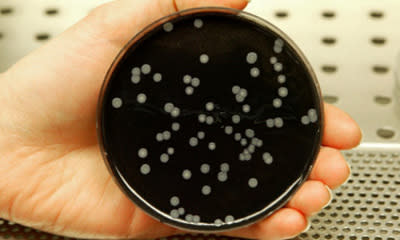Man Dies After Legionnaires' Disease Outbreak

One man has died and 16 people are in a critical condition in hospital after an outbreak of Legionnaires' disease.
A further 15 suspected cases are being investigated in Edinburgh, NHS Lothian said.
The health board said the patient who died was in his 50s and had underlying health conditions. He was being treated at the Royal Infirmary of Edinburgh.
Thirteen men and two women aged between 33 and 74 are in a critical condition with the disease and are being treated in intensive care in hospitals in the Lothian area.
One man has recovered and has been discharged. A further 10 men and five women are also being treated in hospitals but their illness has not yet been confirmed.
The majority of the confirmed cases are linked geographically to the Dalry, Gorgie and Saughton areas in the south west of the Scottish capital.
Dr Duncan McCormick, chairman of the incident management team, said: "I would like to express my sincere condolences to the family of the patient that died.
"Investigations into the possible source of this outbreak are ongoing. Meanwhile, medical staff have been actively identifying possible cases to allow us to ascertain the full extent of this outbreak.
"I would like to reassure the public that household water supplies are safe and that Legionnaires' disease cannot be contracted by drinking water."
The health board said legionella bacteria is commonly found in sources of water, such as rivers and lakes.
The bacteria can end up in artificial water supply systems, including air conditioning systems, water services and cooling towers.
Legionnaires' disease is contracted by breathing in small droplets of contaminated water.
Symptoms include mild headaches, muscle pain, fever, a persistent cough and sometimes vomiting and diarrhoea, and can begin any time between two and 14 days after exposure to the bacteria. The first case was identified on May 28.
The condition is not contagious and cannot be spread directly from person to person.
The source of the outbreak continues to be investigated by officials from the City of Edinburgh Council's Environmental Health Department and the Health and Safety Executive .
Samples have been taken from four cooling towers in the city, though it may be up to 10 days before results are available as legionella is a difficult bacteria to culture.

 Yahoo News
Yahoo News 